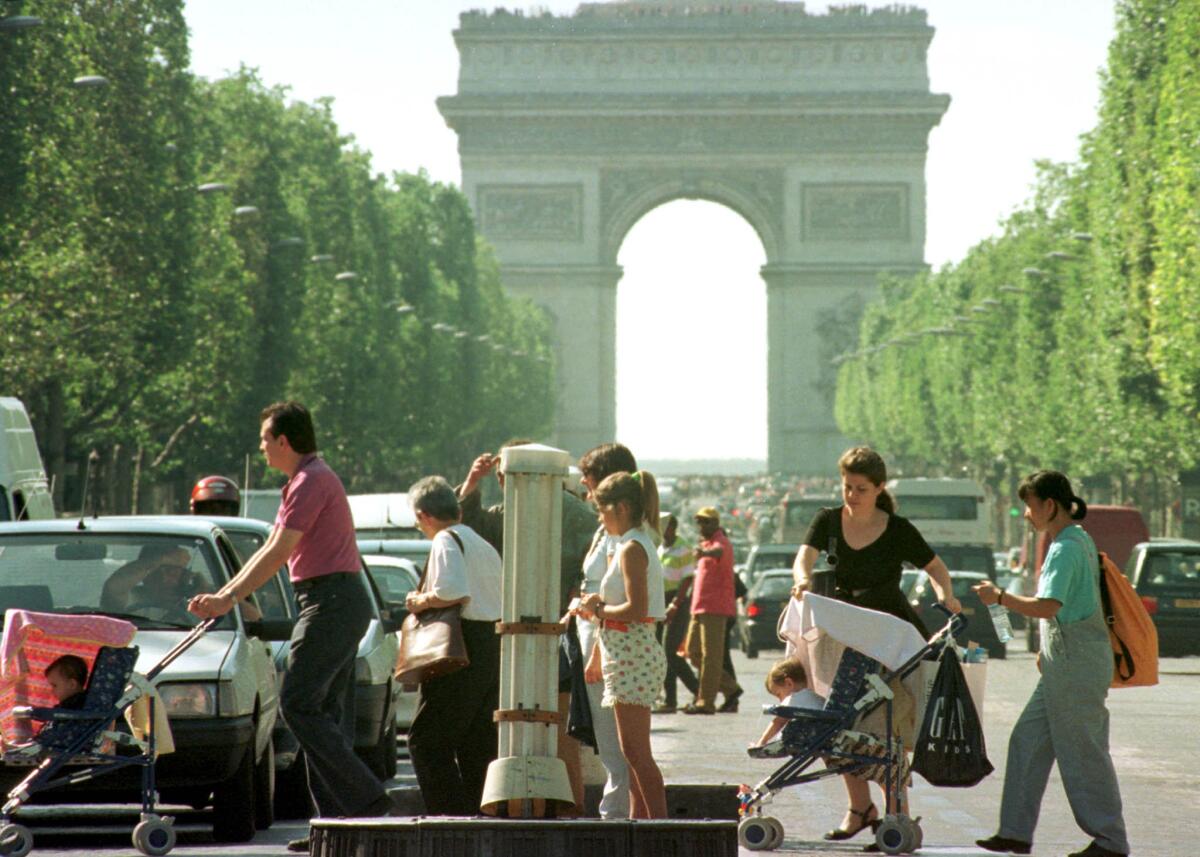Dominique Fabre and the literature of nothing (and everything)

- Share via
“There are no second acts,” Dominique Fabre writes in his new novel “Guys Like Me” (New Vessel Press: 144 pp., $15.99 paper). It’s a nod to Fitzgerald, sure, but it is also an existential statement, made by an unnamed Parisian who, as he drifts through his 50s, finds himself increasingly unmoored.
Divorced, the father of an adult son, he works in an office, although we never find out much about what he does. Rather, the novel revolves around small interactions, particularly with two old friends and with a woman he meets on a dating site. “Sometimes,” he tells us, “you’re so alone you think you’re talking aloud even when you haven’t said a word.”
Fabre is a genius of these nuanced, interior moments; his 2008 novel, “The Waitress Was New,” offered a similar glimpse of quiet lives. Born and raised in Paris, he’s written a dozen or so books, but none of the others have been translated into English.
That’s a real loss, because in both “The Waitress Was New” and “Guys Like Me,” he stakes out a compelling territory, explicating the inner lives of characters who cannot quite articulate their hopes and longings to themselves. Middle-aged, middle-class, office workers mostly, they are reminiscent of the grey men and women evoked by Nathanael West in “Miss Lonelyhearts,” except that Fabre’s characters are motivated more by disappointment than despair.
This is not to say they are without hope, or even redemption, although this, too, happens on its own terms. Fabre’s narrator finds solace (if that’s the right word) in his relationship with his son, which is tentative yet caring, and in the possibilities of his connection to the woman as it grows.
And yet, he never promises too much, or expects anything. “I dreamed about my childhood,” he acknowledges, in one of the novel’s liveliest passages. “That doesn’t happen often these days. It seemed quite beautiful now. Why? Maybe because I didn’t have much time left? And then finally it all calmed down, as if nothing had happened, just like that, because it was the next day.”
What Fabre is getting at is the insubstantiality of even the most resonant moment, the way that we are all lost in the face of time.
On the one hand, that’s a theme that runs throughout contemporary French literature; it echoes the work of novelists such as Albert Camus, Patrick Modiano, Nathalie Sarraute. On the other, it gets at not just the condition of modernity but humanity itself. The story Fabre tells is that of every one of us: looking for meaning in the mundane, moving through our lives, our interactions, as if through the fabric of a dream. What we live on the outside and what we feel on the inside — that is the divide he traces in this book.
It’s tempting to call “Guys Like Me” a novel about nothing, but in fact it is more accurately about everything. How do we live? it asks to consider. And: What does our existence mean? That it doesn’t offer an answer is the point precisely because answers crumble in the end. “I’m waiting for tomorrow,” Fabre’s narrator tells us. “Well, there it is.”
twitter: @davidulin
More to Read
Sign up for our Book Club newsletter
Get the latest news, events and more from the Los Angeles Times Book Club, and help us get L.A. reading and talking.
You may occasionally receive promotional content from the Los Angeles Times.









